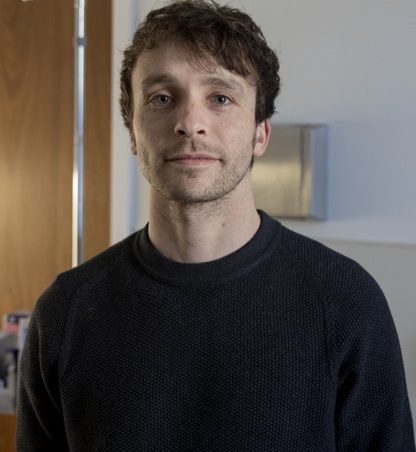Aucun résultat

Dr. Kyle T. Greenway conducts clinical, naturalistic, and fundamental research on novel psychiatric interventions, particularly psychedelic-assisted psychotherapies for refractory depressive disorders. He leads the Ketamine-Assisted Therapy service at the Jewish General Hospital, one of only a handful of clinics in the world to offer a psychedelic therapy for severe depression in a public payer system. His work explores the impacts of extra-pharmacological factors on psychedelic and conventional psychiatric treatments, including how treatment protocols can be tailored to individuals based on their unique life experiences and cultures. Before joining McGill, Dr. Greenway completed postdoctoral studies at the world-leading Imperial College Psychedelic Research Centre, as well as the McGill Clinical Investigator Program.
Dr. Kyle T. Greenway is deeply interested in the ways in which psychopharmacology and psychotherapy intersect and overlap. His active projects are largely focused on treatment-resistant depression and involve ketamine, psilocybin, therapeutic processes, suicide, and cognition. Before clinical research, he conducted fundamental research in quantum chemistry and biomolecular modeling.
Dr. Greenway’s research focuses on:
Greenway KT, Garel N, Dinh-Williams LL, Beaulieu S, Turecki G, Rej S, Richard-Devantoy S. JAMA Netw Open. 2024 Feb 5;7(2):e2354719. doi: 10.1001/jamanetworkopen.2023.54719.
Garel N, Drury J, Thibault-Levesque J, Goyette N, Lehmann A, Looper K, Erritzoe D, Dames S, Turecki G, Rej S, Richard-Devantoy S, Greenway KT. Frontiers in Psychiatry. 2023; 14: 1268832. doi:10.3389/fpsyt.2023.1268832 PMID: 37795512.
Garel N, Thibault Lévesque J, Sandra DA, Lessard-Wajcer J, Solomonova E, Lifshitz M, Richard-Devantoy S, Greenway KT. Front Hum Neurosci. 2023 Jul 18;17:1200393. doi: 10.3389/fnhum.2023.1200393.
Garel N*, Greenway KT*, Dinh-Williams LL, Thibault-Levesque J, Jutras-Aswad D, Turecki G, Rej S, Richard-Devantoy S. Neuropsychopharmacology. 2023;48(12):1769-1777. doi: 10.1038/s41386-023-01689-y. PMID: 37532888.
Greenway KT, Garel N, Jerom L, Feduccia. Expert Reviews in Clinical Pharmacology. 2020;13(6):655-670. doi: 10.1080/17512433.2020.1772054. PMID: 32478631.
Damba JJ, Bodenstein K, Lavin P, Drury J, Sekhon H, Renoux C, Trinh E, Rej S, Greenway KT. CNS Drugs. 2022; 36:1049-1077. doi: 10.1007/s40263-022-00952-y.
Rosenblat JD, Husain MH, Lee Y, McIntyre RS, Mansur RB, Castle D, Offman H, Parikh SV, Frey BN, Schaffer A, Greenway KT, Garel N, Beaulieu S, Kennedy SH, Lam RW, Milev R, Ravindran A, Tourjman V, Van Ameringen M, Yatham LN, Taylor V. Canadian Journal of Psychiatry. 2022;68(3):070674372211113. doi: 10.1177/07067437221111371.